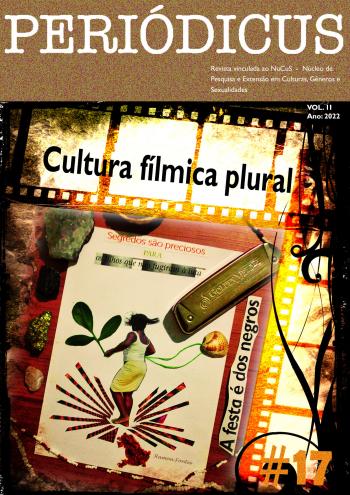Kit-gay
a workshop, colored papers and lots of “gender ideology”
DOI:
https://doi.org/10.9771/peri.v2i17.37816Abstract
The event ‘P.O.C. Projeto Outras Cores: Três Dias para Falarmos de Diversidade e Educação,’ conducted by the Centro Acadêmico Florestan Fernandes of the Social Sciences course at the Universidade Federal de Pelotas (CAFF-UFPEL) and the Extension Project ‘Mapeando a Noite: O Universo Travesti,’ under the research project ‘Margens: grupos em processos de exclusão e suas formas de habitar Pelotas’ from the Grupo de Estudos Etnográficos Urbanos of the Department of Anthropology and Archeology (GEEUR-UFPEL), took place on May 14, 15 and 17, 2019, at UFPEL. The workshop ‘Kit-gay: Construindo Saberes para Discussão de Gênero e Sexualidade em Contextos Educacionais,’ a segment of the event, was held during a troubled political context, in which ‘gender ideology’ is used to mobilize authoritarian political actions. Hence, this paper reflects on the dialogue between Anthropology and Education based on a brief contextualization about the so called kit-gay (gay kit), using methodologies that address gender, education, performance, ideology and narratives.
Downloads
Downloads
Published
How to Cite
Issue
Section
License
Copyright (c) 2022 Felipe Aurélio Euzébio, Newan Acacio Oliveira de Souza, Vagner Barreto Rodrigues, Louise Prado Alfonso

This work is licensed under a Creative Commons Attribution-NonCommercial 4.0 International License.
Authors who publish in this journal agree to the following terms:
Authors retain copyright and grant the journal the right of first publication, with the work simultaneously licensed under a Creative Commons Attribution Noncommercial License that allows the work to be shared with acknowledgment of authorship and initial publication in this journal, but prohibits commercial use.
Authors are authorized to enter into separate additional contracts for non-exclusive distribution of the version of the work published in this journal (e.g., publishing in an institutional repository or as a book chapter), with acknowledgment of authorship and initial publication in this journal.
Authors are permitted and encouraged to publish and distribute their work online (e.g., in institutional repositories or on their personal website) at any point before or during the editorial process, as this can generate productive changes and increase the impact and citation of the published work (see The Effect of Open Access).








